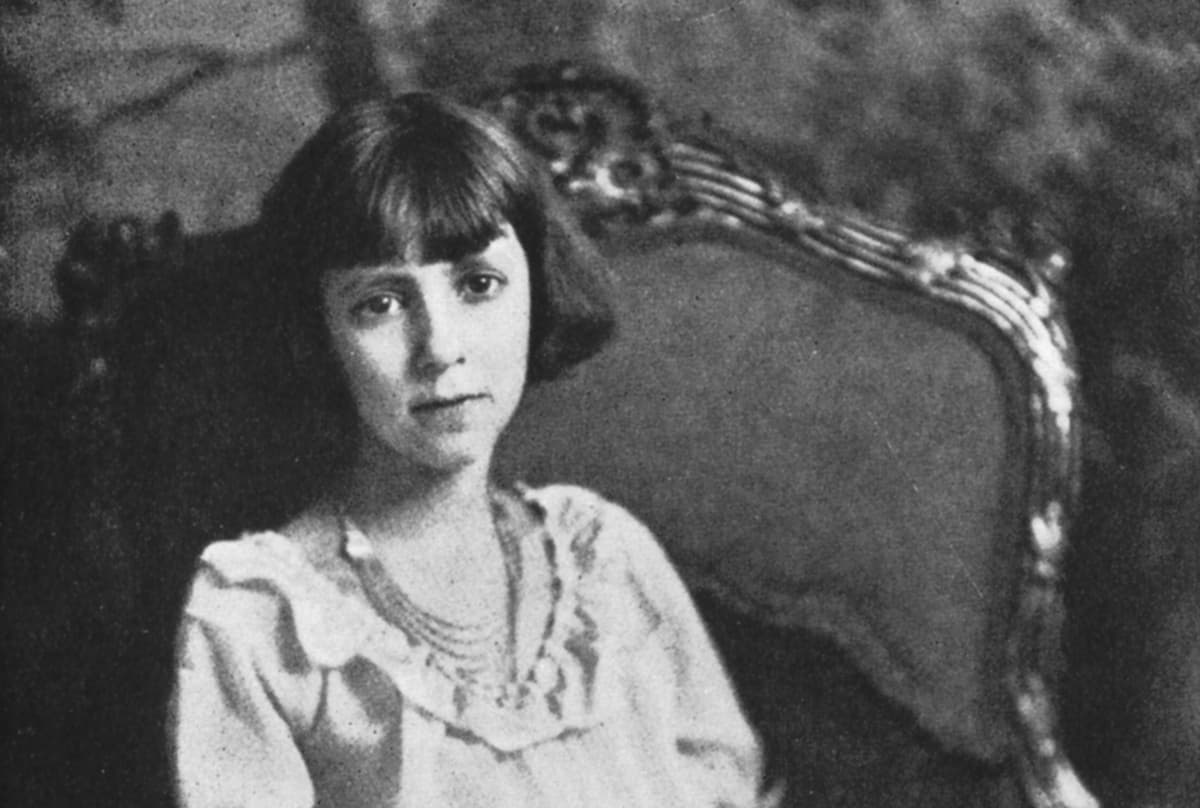Poem of the Day: ‘The History of Honey’
More than a century ago, the Sun published this poem, speaking of ‘the ancient essence of the very sweetest things,’ by an author who turned out to be but nine years old.

In 1922, The New York Sun published a poem called “The History of Honey.” The Sun’s poetry editor at the time — our predecessor, Edmund Leamy (1890–1962) — received the poem in the mail and liked it well enough to publish it, sending the author a check for six dollars and encouraging her to send in more verses.
And why not? The poet tells the story of purchasing an illustrated Chinese book. And in that imaginary book, she finds a myth about the creation of honey by the first bees, who stored it in the Mountains of the Moon — where it grew richer and more redolent, as though “Imprisoned in this honey, aging as the aeons wane, / Are the souls of all the flowers, waiting to be born again.” In rhymed couplets of seven-foot lines, the poem is metrically competent, whimsical, and exactly the kind of thing a harried poetry editor, needing weekly copy for the Sun’s pages, would be glad to receive.
What Leamy didn’t know was that the author, Nathalia Crane (1913–1998), was nine years old at the time. After taking a few more poems from her, he invited her to have lunch with him at the Sun’s offices the next time she came in to Manhattan from her home at Flatbush. As Crane would later tell the story, he was so flustered by discovering that the poet was a child that she never got the lunch she had been promised.
The best account of the turmoil that followed is “Nathalia from Brooklyn,” a 1926 essay written by the screenwriter Nunnally Johnson for H.L. Mencken’s American Mercury magazine. In 1924, Crane, then eleven, collected her work in “The Janitor’s Boy: And Other Poems.” The title poem remains her most-republished work, and the volume showed how quickly she was taken up — with a foreword by William Rose Benét and an afterword by Edmund Leamy.
The volume brought her into the circle of poets and critics around the relentless New York poetry anthologist Louis Untermeyer. It also brought enough attention that a pair of reporters from the Brooklyn Daily Eagle, perhaps angry that they had missed a story in their own bailiwick, decided that the girl’s writing must be a fraud, and they published piece after piece purporting to prove it. (Nunnally Johnson is not kind to their determined efforts to rip the mask of a young girl from the face of the actual author, who, they were sure, had to be an adult.)
Nothing was ever settled, and the arguments about her work slipped from public memory by the late 1930s. Unlike, say, Edna St. Vincent Millay’s work in her twenties, Crane’s poetry did not much improve as she grew up, and readers lost interest in her without the frisson of her being any longer a child prodigy or an adolescent wonder.
Still, Nathalia Crane’s verse shouldn’t entirely slip away. The antique Chinese author she invented “got the ancient essence of the very sweetest things,” and that kind of line deserves a place in our memory of 1920s American poetry. Edmund Leamy was right to print the poem. I would have, too.
The History of Honey
by Nathalia Crane
“The History of Honey” — by an aged mandarin,
And I bought it for the pictures of the burnished bees therein.
For the dainty revelations, masquerading up and down,
For the odor of the sandalwood that talked of China-town.
According to the mandarin, the Oriental bees
Were the first to hoard their honey in the mountain cavities.
In the ages of antiquity, each summer afternoon,
They flew in golden convoys to the mountains of the moon.
And there, in caves by cataracts, where nothing could annoy,
Poured gallons in the caverns when Confucius was a boy.
Many mountains bulged with honey stored before the days of Ming,
From each crevice dripped the essence of a very precious thing.
Imprisoned in this honey, aging as the aeons wane,
Are the souls of all the flowers, waiting to be born again:
Every lotus, every poppy, every tulip, every rose.
And those who sip the honey slip beyond all human woes,
Dream again of youth’s digressions, index misty ways of joy,
Turn unto the pagan pastimes of Confucius — as a boy.
Doubtless there are yet secreted some divine distilleries
Overflowing with the wonder worth a dozen dynasties.
But the mandarin, he made no map, contented in old age
To draw the clinging love scenes of the bees on every page.
There he found an inspiration antedating all the Mings,
And he got the ancient essence of the very sweetest things.
___________________________________________
With “Poem of the Day,” The New York Sun offers a daily portion of verse selected by Joseph Bottum with the help of the North Carolina poet Sally Thomas, the Sun’s associate poetry editor. Tied to the day, or the season, or just individual taste, the poems are drawn from the deep traditions of English verse: the great work of the past and the living poets who keep those traditions alive. The goal is always to show that poetry can still serve as a delight to the ear, an instruction to the mind, and a tonic for the soul.
